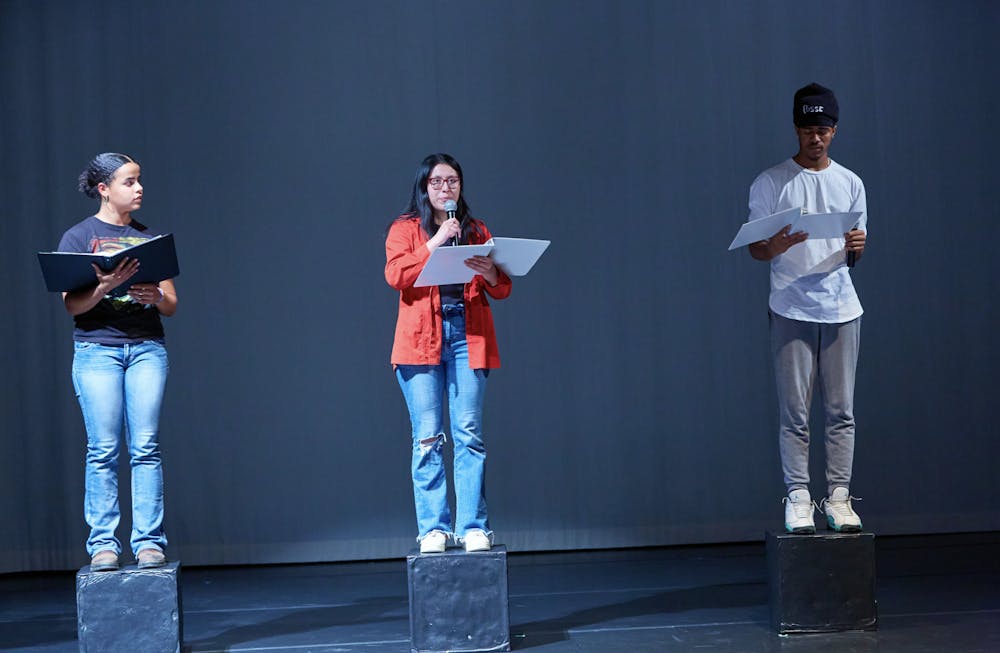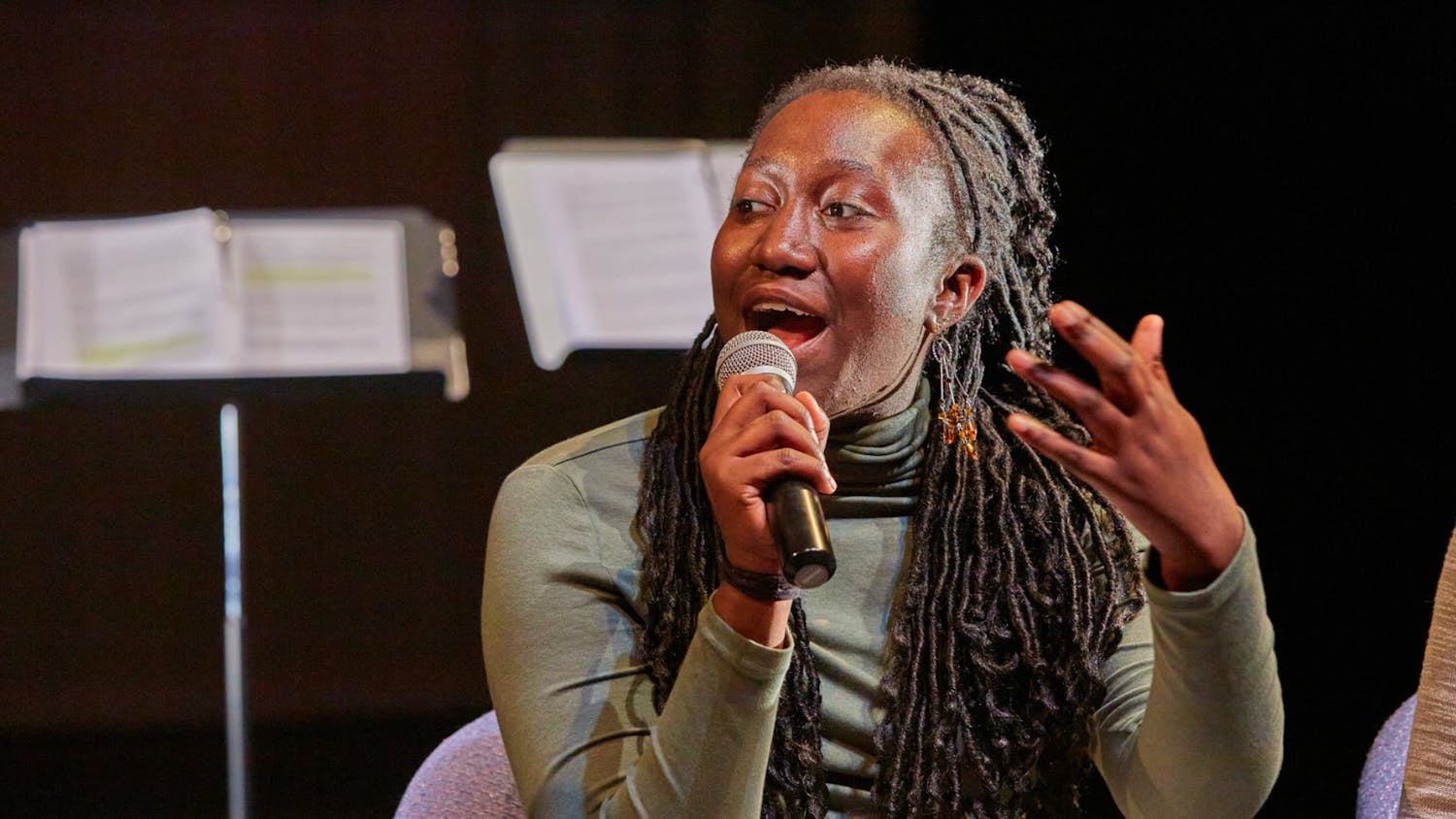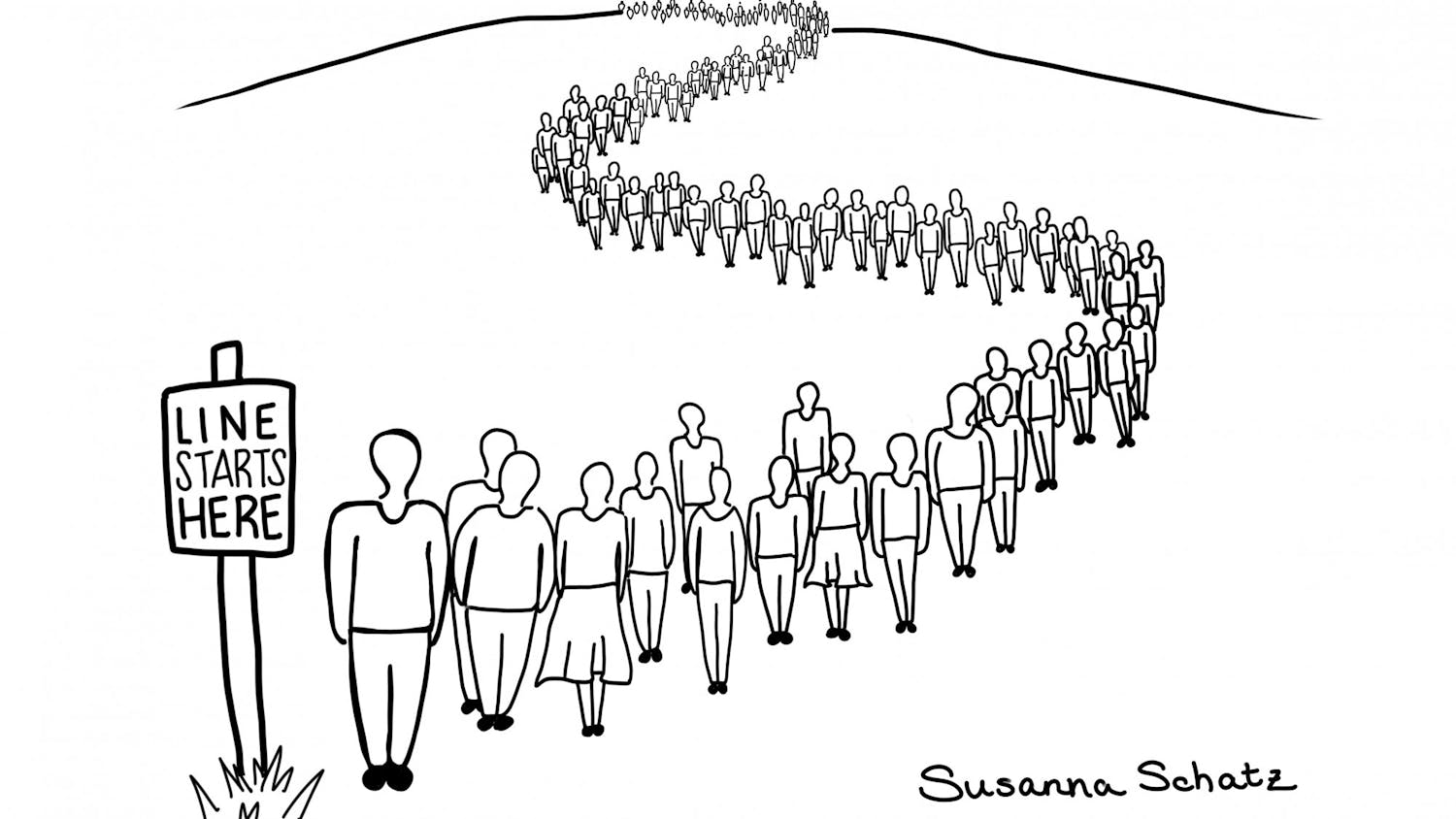“Freedom Dreaming: Envisioning an Antiracist Middlebury,” a spoken word performance, was presented by Faculty Director of Equity, Justice & Inclusion Tara Affolter and a group of students with the aim of examining the potential for an antiracist Middlebury on Jan.18. The group’s work began in the spring of 2021, when they conducted interviews with students of color about racism on campus, asking the bold question, “What would an anti-racist Middlebury look like?” After transcribing the interviews, staging and rehearsing, the planned fall 2021 performance was canceled because of the Covid-19 pandemic. The group finally performed this past November. This first performance was covered in detail by The Campus, but Jan. 18 marked the group’s final performance. There was a Q&A following the performance, as well as an update on what has been accomplished in the months since the initial performance.
During the Q&A, cast members reflected honestly about the time, energy and focus required to put this production on a second time. Raimatou Abdoulaye ’23, who was in the audience, picked up on this keenly and acknowledged how important these students’ work is, but he also recognized that the promotion of antiracism is falling on the same people that are suffering in the current system. “I’m in awe at the amount of labor that was put into this considering how much labor it takes to simply exist as a person of color on this campus,” Abdoulaye said.
At another point in the Q&A, one professor in the audience inquired about how to let BIPOC students know that faculty are trying, even when their efforts fall short. Aakhut Khepra ’26, one of the cast members, remarked that there is a balance within the BIPOC community on campus between acknowledging harm but also encouraging people to keep trying. “I like to say both you can grow from this, but also, that was fucked up,” Khepra said.
One of the most resounding themes of the performance was the policing of language at Middlebury. Language student and audience member Sylvia Jade Smily ’25 reflected specifically on how linguistic discrimination — or the preference of certain forms of speaking, writing and behaving over others, often in academia — must be addressed to make language learning anti-racist. “It is so important that the classroom is not only an inclusive place, understanding that language is variable and subjective, but that we acknowledge the way that [the notion of] ‘correctness’ in language often reflects who has power in a society,” Smily said.
Smily is also a student of art history and museum studies, a field that has historically been pervaded by colonialism and racism. She sees exciting changes in her department, including the plan to hire a tenure track scholar in African and African Diaspora Art. “My field has so much work to do on addressing who gets to tell their story through their art, and I feel like this is one crucial step in the right direction,” Smily said.
Other students in the audience remarked on positive trends they have seen on campus. Several seniors in the audience reflected on how much more diverse Middlebury has become since they matriculated almost four years ago. This change brought up complex emotions for Kai Velázquez ’23, who was happy to see the increase in diversity but disappointed that the same diversity wasn’t present throughout their whole time on campus. “Seeing the classes get more racially and socioeconomically diverse since I’ve gotten to campus makes me feel joyous but also bittersweet. I wish I had that,” Velázquez said.
Another notable change since the first performance was that many more professors attended the second time. As the performance makes clear, anti-racism at Middlebury starts in the classroom and involves teachers being radically open to new pedagogy. Touching stories about how tangible changes in classes were made since the first performance — including one professor diversifying their curriculum mid-semester, and another taking feedback from students of color about problematic rhetoric and taking class time to discuss — added an element of hope and optimism to Freedom Dreaming’s approach to change. Associate Professor of Education Jonathan Miller-Lane had concrete takeaways from the program about the importance of keeping interpersonal and systemic levels of racism and justice work in mind. “Freedom Dreaming asked us to keep in mind that the changes we need involve the specific quality of interpersonal relations as well as changes at the systemic level. We need to attend to this range all the time, and we need to do it as human beings sharing an educational space,” Miller-Lane said.
Affolter gave promising reports about future work from Freedom Dreaming. She noted the increased attendance by professors, interpreting it as a confirmation of the increasing prospects of this conversation being brought from the theater and into the hands of teachers and educators. “We are ready to keep the work going, by adapting this performance for professors and workshops specifically designed for addressing classroom needs,” Affolter said.
During J-term, students are working with a production company to create a video form of Freedom Dreaming to use for this purpose. In the meantime, resources and related events will continue to be posted at go/freedomdreaming/




